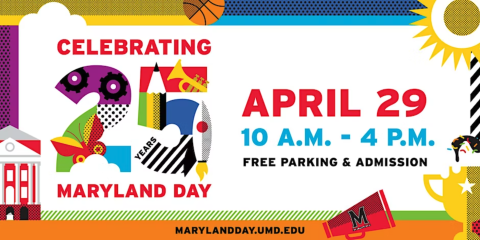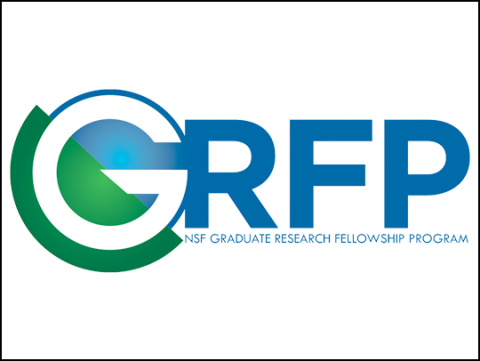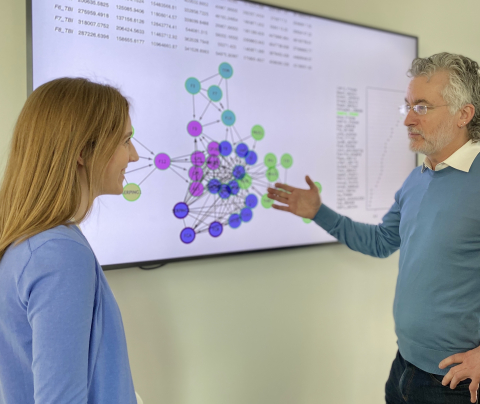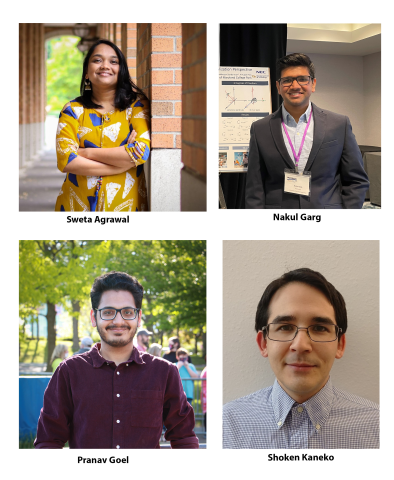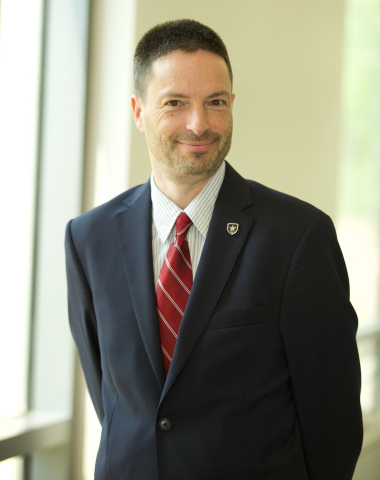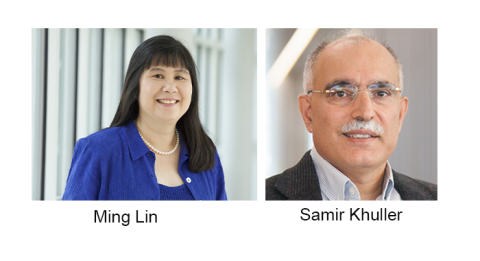Recent News & Accomplishments
2023
Junior Andrew Yuan loves building things from mobile apps to extended reality software.
University of Maryland junior Andrew Yuan , a dual-degree student in mathematics and computer science, swears by three things: practicality, adaptability and creativity. Over the years, that philosophy helped Yuan create everything from childhood Lego masterpieces to his current computer science project—a mobile app designed to rate UMD campus toilets . Yuan first developed his creative skills while growing up as the son of a traveling diplomat. Now based in Washington, D.C., Yuan was born in California and later spent six-year spans in Taiwan and Thailand as his father’s international... read more
The Department of Computer Science will host eight events.
Explore our world of innovation and learning on Maryland Day ! Maryland Day is an opportunity for prospective students and community members to learn more about the University of Maryland – and find out how the College of Computer, Mathematical, and Natural Sciences is reimagining teaching and learning to prepare the next generation of scientific leaders for success. Unlock a world of learning, discovery and exploration, with hundreds of family-friendly festivities including exhibits, workshops, hands-on demonstrations, performances, cross-campus tours, lectures, petting zoos and athletic... read more
Four graduate students and recent alums of the University of Maryland’s Department of Computer Science received prestigious National Science Foundation (NSF) Graduate Research Fellowships, which recognize outstanding graduate students in science, technology, engineering, and mathematics. The department’s four awardees included: Tyler Han (B.S. ’22, computer science; B.S. ’22, aerospace engineering) Tobias Janssen, computer science graduate student Mikhail Khrenov (B.S. ’22, computer science; B.S. ’22, mechanical engineering) Jon Nelson, computer science graduate student Across the university... read more
James Mullen, a second-year doctoral student in the Department of Computer Science at the University of Maryland, has been honored with an Honorable Mention, Best Paper award at the prestigious 2023 IEEE VR conference . The conference is globally renowned for presenting and publishing innovative research work in virtual, augmented, and mixed reality (VR/AR/XR). Mullen's research focuses on creating realistic virtual agents that can move and interact with a 3D scene, whether it is virtual or real and crowded with objects. He uses motion-captured human data to create moving avatars that look... read more
Michael Cummings, a professor of biology with an appointment in the University of Maryland Institute for Advanced Computer Studies , is the recipient of a $50,000 Individual Project Grant that will support his work in analyzing genetic ancestry more accurately at the sub-chromosome level. The award comes from the university’s Grand Challenges Grants Program , a $30 million initiative to support research that offers promising solutions to emerging societal issues like climate change, social injustice, global health and education disparities. Cummings’ three-year project, "Accurate, Equitable... read more
Three graduate students in the Maryland Cybersecurity Center (MC2) have been awarded seed grants to pursue research in security and privacy that has not yet been externally funded. “It’s a validation that the work we’re conducting is relevant to security and privacy research in the eyes of MC2 faculty, some of the top researchers in the world,” says Omer Akgul , a sixth-year computer science doctoral student who studies the negative effects of virtual private network (VPN) advertising being vague and misleading. He previously led a study that examined YouTube influencer marketing ads for VPNs... read more
Four graduate students in the Department of Computer Science have been named recipients of the prestigious Ann G. Wylie Dissertation Fellowship for the academic year 2023-2024. Sweta Agrawal , Nakul Garg , Pranav Goel, and Shoken Kaneko were each awarded the fellowship, with Agrawal and Goel being fifth-year students and Garg and Kaneko in their fourth year. The Ann G. Wylie Dissertation Fellowship is named after Ann Wylie, a professor emerita in the Department of Geology at the University of Maryland. The fellowship provides doctoral candidates who are in the latter stages of writing their... read more
Michel Cukier, director of the Advanced Cybersecurity Experience for Students (ACES) undergraduate Honors College program and a professor of reliability engineering, has received a University System of Maryland Board of Regents Faculty Award for Excellence in Mentoring. Cukier is being recognized for creating ACES, “a unique, multidisciplinary, successful program for educating the nation’s future cybersecurity leaders,” said the board in a statement. The awards are the highest honor presented by the USM Board of Regents and carry a $2,000 prize. Cukier and the 18 other award recipients will... read more
University of Maryland’s Distinguished University Professor Ming Lin and Emeritus Professor Samir Khuller have been elected to the Computing Research Association (CRA) Board of Directors. CRA is a North American organization that brings together academic departments, laboratories, and professional societies involved in computing research. The election of Lin and Khuller to the board reflects their outstanding contributions to the field of computer science and their leadership roles in academia. Lin is an expert in Robotics, Virtual Reality, Computer Graphics, and Human-Centric Computing. Her... read more
Senior Maxwell Myers conquers the challenges of track and computer science and clinches a career opportunity at Microsoft.
University of Maryland computer science major Maxwell Myers knows what it takes to be a winner. From the day he joined the track team as a freshman at Howard High School in Ellicott City, Md., Myers dedicated himself to working hard and building his confidence, running race after race with a commitment to keep getting faster. One of his proudest moments was breaking his own personal record at the 2018 Maryland outdoor state championship. “That race was the culmination of everything I had worked for in track and field and it was one of the most surreal moments in my life,” Myers reflected. “I... read more

